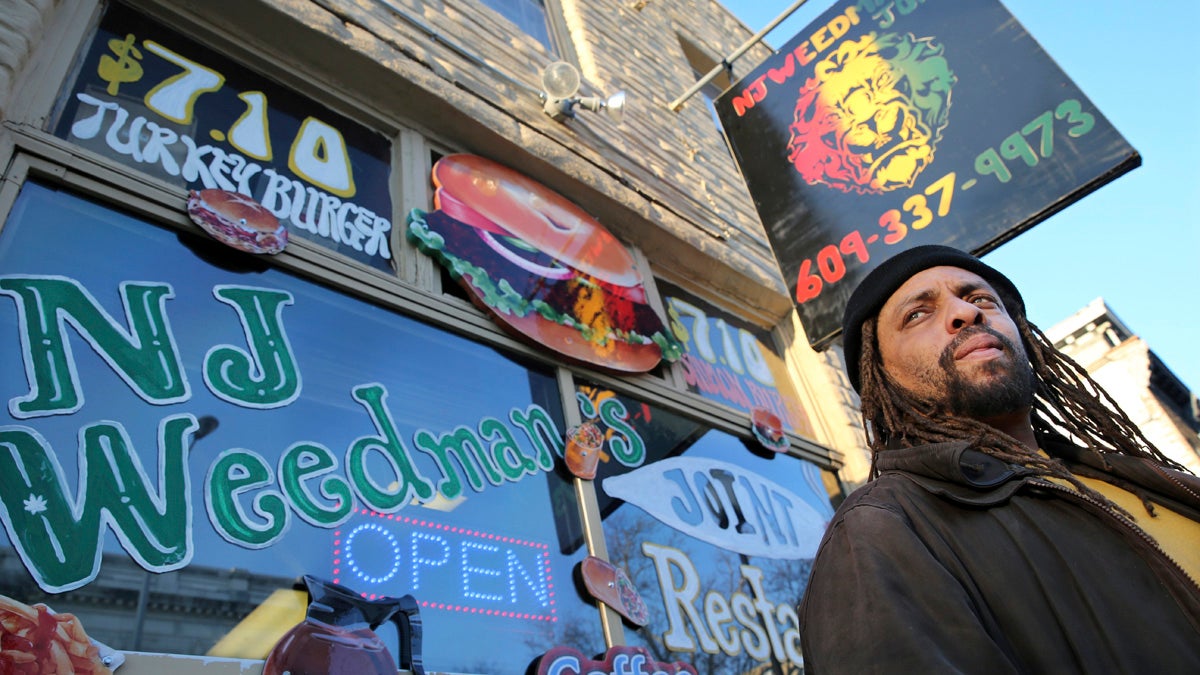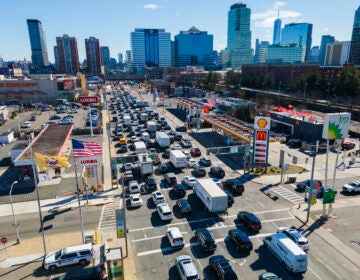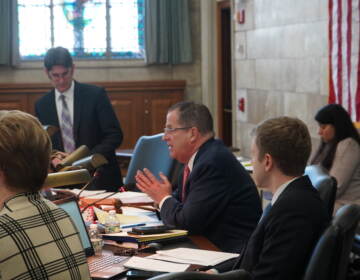NJ voters legalized recreational marijuana — but the fight isn’t over
After years of back and forth, New Jersey voted to legalize recreational marijuana. So why do some cannabis activists say it isn’t enough?
Listen 14:58
Ed Forchion, a pro-marijuana activist known as NJ Weedman, in front of his store in Trenton. (AP Photo)
Last week, New Jersey voted overwhelmingly on a constitutional amendment to make recreational marijuana legal, a law that has been 10 years in the making.
But it could be a while before you can actually walk into a dispensary and buy cannabis for personal use. That’s because lawmakers still have to figure out what legalization will look like — and who will benefit.
Philadelphia Inquirer cannabis reporter Sam Wood walks us through the Garden State’s path to legalization, which included framing legalization as a social justice issue. He says some cannabis activists disagree with this framing and claim new regulatory structures exclude people of color who don’t have big investors behind them.
Interview highlights
On marijuana’s impact in New Jersey
It’s a pretty big deal because it’s the first state in the mid-Atlantic region to legalize for adults. New Jersey has had medical use ostensibly since 2010. But it’s been a pretty anemic program. This, some analysts are saying, could lead to a market valued at $2 billion dollars with a lot of potential tax revenue for New Jersey. And it’s also likely that criminal arrests for marijuana will be seriously curtailed.
On opposing views
There were definitely some lawmakers and members of the public who said legislation normalized the use of drugs, considered it a gateway to narcotics, thought decriminalizing sent a message to people that it’s OK to use. And there was some talk about the potential of stoned drivers creating peril on New Jersey highways. …[But] there was enough support in the legislature to put the vote to the people of New Jersey. And partly the reason they did that was that there were certain legislators that did not want to be blamed for legalizing marijuana in the state. So with continued advocacy from people like Governor Murphy, who have stressed that it would help raise money during the pandemic, this very active group of people kept hammering home the idea that it was not only good for revenues, but very good for the criminal justice reform.
On Ed “Weedman” Forchion, who sells weed directly across from City Hall in Trenton
Weedman started his activism after he got arrested on a pretty major possession charge. He moved mass quantities from the west cost to the east. He was arrested in 1997. And when he got out, he said he was determined to help change the law. Currently, he is operating a shop, a storefront right across from Trenton City Hall, where he sells 16 varieties of marijuana and none of it’s legal.
On the Sunday that I visited his shop in Trenton. There was a Grateful Dead cover band in the backyard. There were about 50 people all told on the on the property. People were dancing to Sugar Magnolia and just lighting up in the backyard, passing bongs around. You know his shop is about as antithetical to you know the clean corporate cannabis as you’ll find. It looks like an old head shop. There are Bob Marley and Jimi Hendrix posters on the wall, big jars of of bud. It’s a little bit dank, but it’s very brightly lit. He’s got all kinds of edibles for sale. His selection is much bigger than any of the legal dispensaries in the state. It’s fascinating.
He actually voted no on the ballot question. […] because the way things are currently set up, Fortune and other activists and, you know, smaller what they call the traditional market dealers say the new system isn’t going to be accessible for people like him, people of color who’ve been arrested for engaging in this industry before it was legal. [Forchion says,] “I’m a felon. They’re excluding all felons. And I’m a felon for selling marijuana. Now they’re making it legal. White guys on the Caucasian cannabis corporations are going to be selling marijuana and guys like me are still illegal. They’re not making any provisions for guys like me.”
WHYY is your source for fact-based, in-depth journalism and information. As a nonprofit organization, we rely on financial support from readers like you. Please give today.






